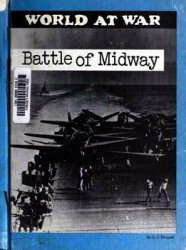The Truman Doctrine established a policy of American support to countries fighting COMMUNISM, highlighting anticommunist fears throughout the United States.
The measure was first articulated by President Harry S. Truman in a message to Congress on March 12, 1947. In a speech designed to secure U. S. aid to Greece and Turkey, Truman embraced a policy of containment that would guide American foreign policy throughout the COLD war conflict with the SOVIET UNION.
At the end of World War II, the United States emerged as the sole, true superpower in a fragile global community. Despite its economic and military dominance, many Americans were fearful of the political repercussions posed by the potential spread of communism. By 1947, the Soviet Union had tightened its grip on Eastern Europe and the relationship between the United States and its former wartime ally had deteriorated considerably. Apprehension within the Truman administration was further heightened by the failure of Western Europe to recover economically after the war. One of the greatest fears of U. S. policymakers was realized in 1947 as Great Britain, its empire dying and its own economy in shambles, chose to withdraw from Greece, leaving that country open to civil war. Meanwhile, Marshal Tito, the communist leader of Yugoslavia, sent aid to communist insurgents in Greece. Turkey’s political situation was also unstable following the suspension of British aid and, due to its access to the Mediterranean, it seemed a likely target of Soviet aggression. A communist takeover of both countries appeared imminent if the United States did not fill the political power vacuum.
Following his message before a special session of Congress, Truman succeeded in gaining $400 million to assist the governments of both Greece and Turkey in resisting communist forces. The subsequent flow of aid and military advisers soon stabilized the situation in both countries. Truman went much further, however, and promised aid to any country fighting communists. According to the Truman Doctrine, the United States would “support free peoples who are resisting attempted subjugation by armed minorities or by outside pressures.” In the developing bipolar world, the United States sought to stop the spread of communism rather than challenge the Soviet Union directly. The Truman Doctrine constituted the rhetorical component of America’s anticommunist foreign policy structure, the Marshall Plan served as its economic embodiment, and the North Atlantic Treaty Organization (NATO) formed its political and military framework.
Truman’s foreign policy was driven by several ideological assumptions. American officials believed that the countries of Europe were so weak, and their people so desperate that, without assistance from the United States, citizens in those war-ravaged nations might turn to communism even without Soviet interference. Policymakers also believed that they understood the nature of both the communist and the Soviet systems. Communism was inherently evil, and thus a fundamental and necessary choice existed between democracy and communism. According to this vision, Joseph Stalin, the Soviet leader, was completely committed to Marxist-Leninist doctrine and thus bent on world domination and never to be trusted. American leaders also assumed that all American interests were global interests. American prosperity could not be insured unless the Soviets were prevented from controlling raw materials—and American prosperity was necessary to bring peace and order to the globe.
Such global thinking led policymakers to ignore specific issues and groups in favor of fitting various conflicts into a general ideological framework. For example, despite Truman’s rhetoric, the governments in neither Greece nor Turkey were democratic and, as critics pointed out, the latter had even been pro-Hitler. The Truman Doctrine also influenced America’s domestic life. Motivated in part by a fear that the country would become a garrison state if it was eventually surrounded by communist nations, the United States amassed a large peacetime military force for the first time in its history. Also, in March 1947, Truman initiated the Federal Employee Loyalty Program, under which individuals could be dismissed for their political beliefs. In order to create popular support for his assistance programs, Truman worked tirelessly to instill a fear of communism in the American citizenry.
The Truman Doctrine marked the first step in America’s massive postwar military build-up. In 1949 anticommunism grew in intensity as the Soviets tested their first atomic bomb and Mao Zedong declared a communist government in China. Following the outbreak of the Korean War in 1950, the defense budget grew even larger.
The impact of the Truman Doctrine was indeed far-reaching, setting the tone for the cold war, establishing a model for America’s new proactive role in world affairs, and serving as a rationale for later American involvement in foreign countries, including Korea and Vietnam.
Further reading: Melvyn P. Leffler, The Specter of Com-muni-ym: The United States and the Origins of the Cold War, 1917-1953 (New York: Hill & Wang, 1994).
—Douglas G. Weaver




 World History
World History









